1. The Muzak Drove You to the Brink of Madness
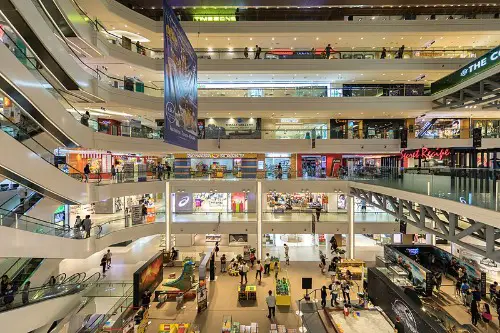
The mall’s sound system pumped out the same elevator-style versions of pop hits on a loop, and it was enough to make you lose your mind. You’d hear instrumental versions of Michael Jackson, Madonna, and Hall & Oates so many times that they became permanently burned into your brain. Even when you left work, you’d still hear the Muzak in your head, haunting your dreams. If you made it through an entire shift without humming along in frustration, you were stronger than most.
To make things worse, the volume was never quite right—either too loud so customers had to shout over it or so soft that it just wormed its way into your subconscious. Some stores tried to rebel by playing their own cassettes, but corporate usually shut that down fast. If you were lucky enough to work at a record store, at least you got to pick your own suffering. Otherwise, you just had to accept that smooth-jazz covers of Top 40 hits were your life now.
2. You Became an Expert in Pretending to Be Busy
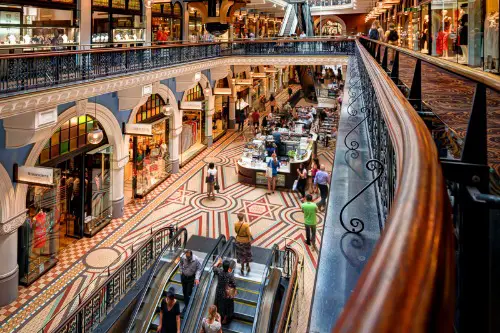
There was nothing worse than being caught standing around by a manager who took their job way too seriously. If there were no customers, you had to look like you were folding, straightening, or doing something “productive,” even if you’d already done it five times. Some employees mastered the art of rearranging one display over and over to kill time. Others would take the long way around the store just to avoid being given another pointless task.
The best trick was holding a clipboard or a handful of hangers because it made you look like you were on a mission. If you worked in a clothing store, perfecting the refold technique was key—open, shake, fold, repeat. In food court jobs, wiping down a spotless counter was the go-to move. The real pros knew how to time their fake work just right so they wouldn’t get roped into actual work.
3. Food Court Trades Were the Only Way to Eat on a Budget
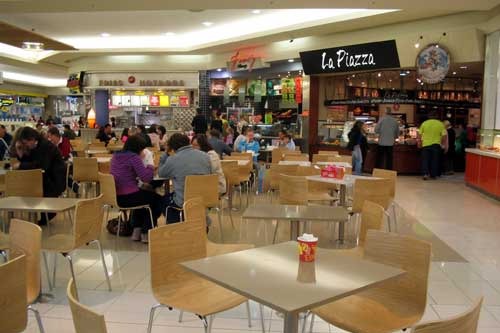
If you worked in the food court, you never paid for a full meal because you had something more valuable—barter power. Pizza workers would swap a slice for some fries, burger employees would trade for an ice cream cone, and everyone had a connection at the pretzel stand. You had to be discreet about it, though, because some managers were real hard-liners about “unauthorized discounts.” If you got caught, you’d have to start paying full price like a chump, and nobody wanted that.
The holy grail of food trades was getting something from the more expensive places like the steak sandwich spot or the teriyaki joint. The best workers built up alliances so they always had a steady supply of free snacks. New hires had to work their way into the system because trust was everything. If you worked in a retail store, you just had to hope you had a food court friend who’d take pity on you.
4. The Mall Walkers Were Surprisingly Hardcore

Every morning, before the stores even opened, an army of senior citizens in matching tracksuits would descend upon the mall. They power-walked in formation like they were training for the Olympics, speed-walking laps around the building before most employees had even had their coffee. You had to respect their dedication, even if they gave you side-eye for being in their way. If you worked a morning shift, you got used to seeing the same faces every day, and they took their routes very seriously.
Some of them even timed their laps, and heaven help you if you accidentally left a cart or display in their path. They barely acknowledged the workers, but they had a kind of silent dominance over the mall before opening hours. Some were friendly, though, and would chat with employees while they stretched. If you made friends with them, you might get some good life advice—or at least a sympathetic look when your manager was being unreasonable.
5. Security Guards Had Their Own Weird Power Complex
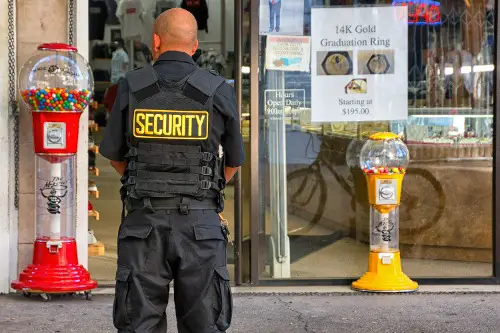
Most mall security guards were just regular guys trying to do their jobs, but every mall had at least one who acted like he was in the Secret Service. They’d strut around with their radios, giving dramatic updates about “suspicious individuals” who were really just bored teenagers. Some took their job so seriously that they memorized store policies better than the actual employees. Others were just there for the free coffee and the occasional chance to chase down a shoplifter.
If you were cool with security, though, they’d give you the heads-up when your manager was on the prowl. They also knew all the mall gossip, which was priceless if you wanted to know which stores were hiring or which managers to avoid. The best security guards kept things fun, joking with employees and keeping an eye out for troublemakers. The worst ones treated their job like a crime drama and made everyone’s lives harder.
6. Dressing Room Nightmares Were a Daily Struggle
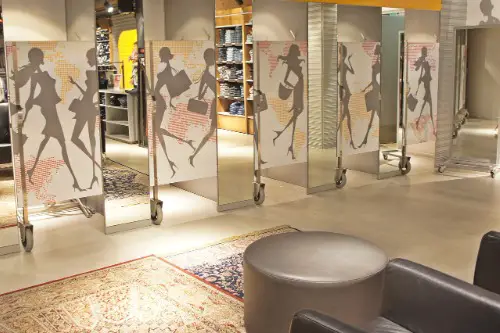
If you worked in clothing retail, you knew the dressing rooms were a lawless wasteland. People would leave piles of clothes inside, step on them, or even worse—leave their gum stuck to the mirrors. The horror stories got worse, with some employees finding half-eaten food or, in rare cases, someone who tried to use the dressing room as a bathroom. Cleaning them out at the end of the night felt like an archaeological dig through bad decisions.
Customers also had a habit of trying on way too many clothes and then handing you a stack of unfolded disasters. Some would argue about fitting room limits like it was a human rights issue. Others would sneak in friends or entire families, turning the rooms into a social event. If you had to knock and check on someone, you always braced yourself for whatever weirdness you were about to walk into.
7. The Arcade Was Both a Blessing and a Curse
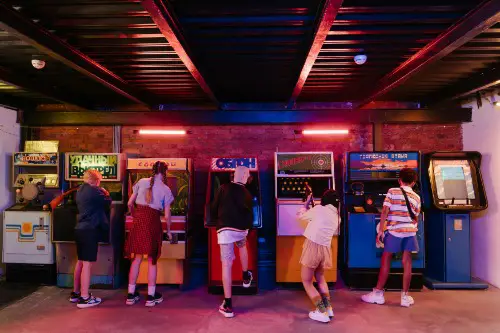
If your store was near the arcade, your shift was either really fun or completely unbearable. On one hand, you got to hear all the best video game sound effects and watch high-score battles during your break. On the other hand, the constant beeping, buzzing, and occasional shouting from sore losers could drive you insane. Worse, kids who lost all their quarters would come wandering into your store, bored and touching everything.
The arcade was also a magnet for trouble, with teenagers getting into arguments over Street Fighter or trying to impress their friends by messing with the change machine. Some employees figured out how to befriend the arcade workers, which sometimes meant free plays after closing. But if your store was right next to it, you learned to mentally tune out the sound of Pac-Man chomping and pinball machines dinging. It was survival of the most patient.
8. Employees Had Their Own Secret Hangout Spots
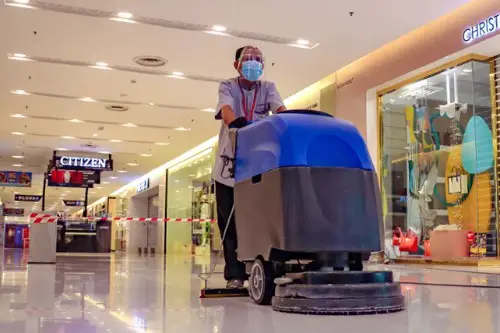
Every mall had at least one hidden break room that only the veteran employees knew about. The official break rooms were usually depressing, with flickering fluorescent lights and a vending machine that ate your money. But if you made friends with the right people, you’d get invited to the good spot—maybe a quiet stairwell, an unused storage closet, or even the back of a store where the manager didn’t care. These were the places where real mall life happened: gossip, complaining about customers, and sneaking in snacks from the food court.
Finding a good hiding spot was a game of survival, especially if you worked in retail and needed a break from folding the same stack of jeans for the tenth time. Some employees even figured out how to take quick naps without getting caught. If you were really lucky, you had a friend at a store with a lounge-style break room—usually a department store or the movie theater. But once too many people found out about a secret spot, it was only a matter of time before a manager shut it down.
9. Holiday Season Was Absolute Chaos

If you thought regular mall life was wild, the holiday season turned it into a battlefield. From Black Friday to Christmas Eve, it was a never-ending stream of stressed-out shoppers, screaming kids, and coworkers on the verge of breakdowns. Every register had a line a mile long, and customers would fight over the last Cabbage Patch Kid or Walkman like it was life or death. If you made it through December without crying in the stockroom at least once, you were a legend.
Santa’s workshop only made things worse, because the line for photos with Santa wrapped around the mall, blocking entire storefronts. Parents would yell at employees as if you personally controlled the North Pole, and exhausted kids would throw tantrums that echoed through the building. Gift-wrapping stations were a whole other level of stress, especially when people expected miracles for oddly shaped presents. By the time January rolled around, employees were practically shell-shocked, just hoping to make it through one quiet shift.
10. Working in a Shoe Store Meant Touching Too Many Feet
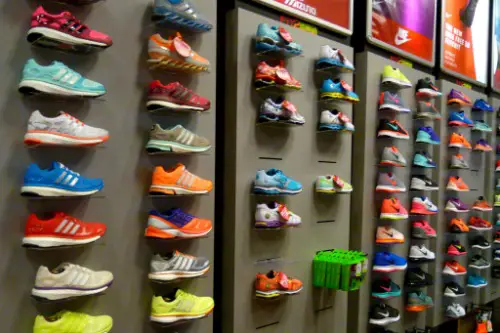
Shoe store employees had one of the worst jobs in the entire mall—endlessly dealing with feet. You had to crouch down, touch sweaty shoes, and help people squeeze into sizes that clearly didn’t fit. Some customers would try on ten pairs, walk around for fifteen minutes, and then leave without buying anything. Others would insist they were a size 7 when they were obviously a size 9 and then blame you when the shoes felt tight.
And the smells—oh, the smells. If someone took off their shoes and unleashed an odor strong enough to clear the store, you just had to power through it. The worst was when people tried on new shoes without socks, leaving sweaty footprints inside for you to clean up. By the end of the day, your hands smelled like shoe polish, and you questioned every life decision that led you there.
11. The Mall Had Its Own Ecosystem of Weird Regulars

Every mall had its own cast of characters—the guy who wandered around in sunglasses indoors, the woman who argued about prices every week, and the group of teenagers who thought they owned the place. Some regulars were harmless, like the elderly man who just came to people-watch and chat with employees. Others were a little more questionable, like the guy who loitered in the bookstore every day but never actually bought anything. If you worked there long enough, you learned who was friendly, who was annoying, and who to avoid at all costs.
One of the strangest things was how some regulars acted like they had an assigned seat in the food court. They’d sit in the same spot every day, reading the newspaper or just watching mall life unfold. If someone took “their” table, they’d pace around until it was free again. By the time you quit or moved on, you almost missed them—almost.
12. Closing Time Meant Dealing with Last-Minute Chaos

There was always that one customer who strolled in two minutes before closing and acted like they had all the time in the world. They’d casually browse, ignore the very obvious closing announcements, and only start asking questions when you were counting the register. Some would even try to start a full-on shopping spree, oblivious to the fact that employees were desperately waiting to leave. If you were lucky, your manager would step in and give them the “We’re closed” stare, but some managers were too nice for that.
The best part of closing was finally locking the doors and blasting your own music while cleaning up. The worst part was finding a disaster zone in the fitting rooms or a trashed food court table that someone abandoned. If you worked retail, restocking everything customers messed up felt like reversing hours of effort. But the moment the gates came down and you walked to your car in the empty parking lot, it felt like winning a small battle—until you had to do it all over again the next day.


